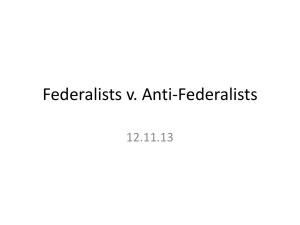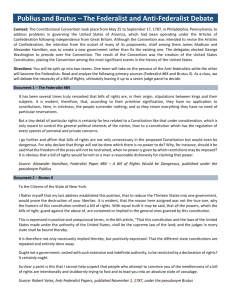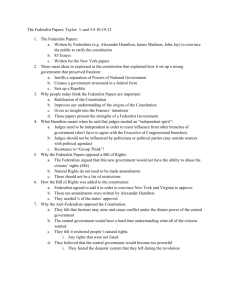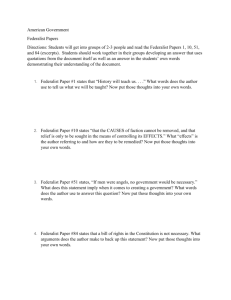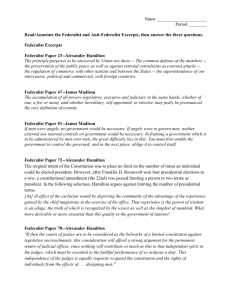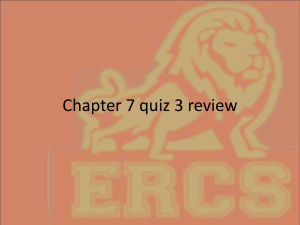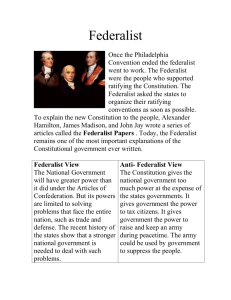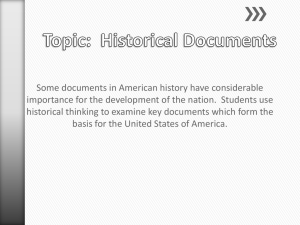Ratifying the Constitution: Federalist vs Anti-Federalist
advertisement
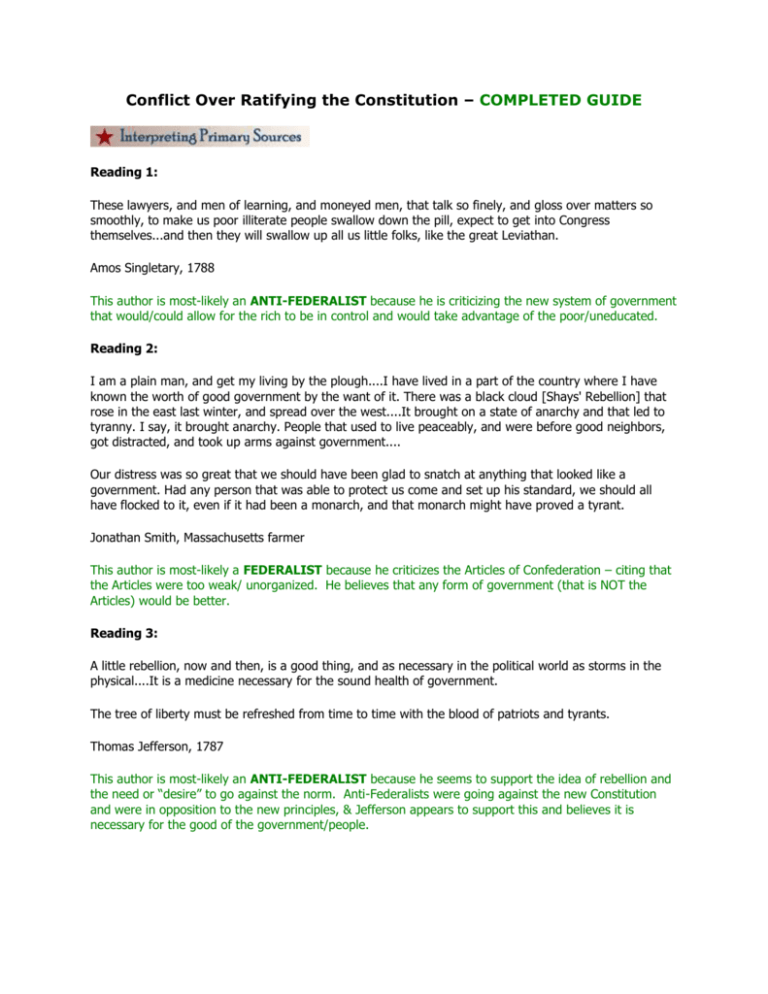
Conflict Over Ratifying the Constitution – COMPLETED GUIDE Reading 1: These lawyers, and men of learning, and moneyed men, that talk so finely, and gloss over matters so smoothly, to make us poor illiterate people swallow down the pill, expect to get into Congress themselves...and then they will swallow up all us little folks, like the great Leviathan. Amos Singletary, 1788 This author is most-likely an ANTI-FEDERALIST because he is criticizing the new system of government that would/could allow for the rich to be in control and would take advantage of the poor/uneducated. Reading 2: I am a plain man, and get my living by the plough....I have lived in a part of the country where I have known the worth of good government by the want of it. There was a black cloud [Shays' Rebellion] that rose in the east last winter, and spread over the west....It brought on a state of anarchy and that led to tyranny. I say, it brought anarchy. People that used to live peaceably, and were before good neighbors, got distracted, and took up arms against government.... Our distress was so great that we should have been glad to snatch at anything that looked like a government. Had any person that was able to protect us come and set up his standard, we should all have flocked to it, even if it had been a monarch, and that monarch might have proved a tyrant. Jonathan Smith, Massachusetts farmer This author is most-likely a FEDERALIST because he criticizes the Articles of Confederation – citing that the Articles were too weak/ unorganized. He believes that any form of government (that is NOT the Articles) would be better. Reading 3: A little rebellion, now and then, is a good thing, and as necessary in the political world as storms in the physical....It is a medicine necessary for the sound health of government. The tree of liberty must be refreshed from time to time with the blood of patriots and tyrants. Thomas Jefferson, 1787 This author is most-likely an ANTI-FEDERALIST because he seems to support the idea of rebellion and the need or “desire” to go against the norm. Anti-Federalists were going against the new Constitution and were in opposition to the new principles, & Jefferson appears to support this and believes it is necessary for the good of the government/people. Reading 4: It cannot be denied with truth, that this new constitution is, in its first principles, most highly and dangerously, oligarchic. Richard Henry Lee, 1787 This author is most-likely an ANTI-FEDERALIST because he refers to the new government as “oligarchic” – stating that a smaller, elite group will control the masses. He sees this type of power as being dangerous & therefore does not support the Constitution. Reading 5: Among the numerous advantages promised by a well constructed union, none deserves to be more accurately developed than its tendency to break and control the violence of faction....Complaints are every where heard from our most considerate and virtuous citizens, equally the friends of public and private faith, and of public and personal liberty; that our governments are too unstable; that the public good is disregarded in the conflict of rival parties; and that measures are too often decided, not according to rules of justice, and the rights of the minor party; but by the superior force of an interested and overbearing majority.... The Federalist, 1799 This statement, taken from The Federalist essays, would be from the FEDERALIST point of view. It is stated here that an advantage to this new system would be that factions (groups/ cliques) would not be permitted. By strengthening our central government and providing fewer opportunities for individual states to break-off, our government will be better/ stronger. The Constitution strengthens the federal government’s power which would create greater unity among the states. 1. Why did opponents object to the Constitution? Concerned over the amount of control over the people. 2. How did supporters of the Constitution defend the new plan of government? Needed to strengthen the federal government in order/ effort to unite the country. 3. Which quotations do you find most persuasive AND WHY? OPINION!
